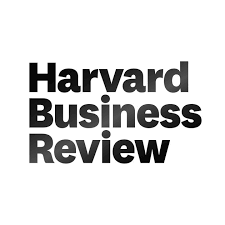Corporate Ethics Isn’t About Rules; It’s About Honesty

Somewhere along the way, as we chase our goals, deadlines, targets or simply our daily to-do lists, we tend to forget the real issues in the world outside our windows. This post may seem a tad more emotional than my previous ones. I am emotional. Recent developments impel me to cut across all boundaries and appeal to leadership to shake off the ‘bigger-larger-higher’ stupor that has consumed business.
* * *
The very least we can do is to be honest about what we do each day. There is so much poverty, so much hunger across the world. Greed for revenue and profits can only transform our world into an animal kingdom.
It matters little what you do as long as you live your life with pride. It is fine to earn more as long as it is done honestly and not at the cost of others.
I am not being naïve to say the world can be completely honest. All I am saying is the more of us have to find our true passion and work for that passion honestly. And in doing so, help our people find pride in their work and the thrill attached to that rather than in hanging an ‘available for rent’ board around our necks.
The recent terror attacks in Mumbai offered a window of opportunity for people from all religions and sects of Indian society to come together and strengthen the war against terrorism. The Satyam disclosure has had a similar effect on the corporate world in India.
It is resulting in a search for the ‘ethical quotient’ among leaders. Going beyond the intelligence quotient and the emotional quotient, it is seeking answers to important questions such as: How much is too much? How big do you want to be? How far are you willing to go to get there? Is being big more important than being trusted?
It is a leader’s approach to these questions that determines the destiny of a company.
Unlike popular perception, corporate governance is not merely ensuring adherence to a set of rules. It is also not about smart brand-building exercises to manage “perceptions.” It is less about policing and posturing and more about nurturing trust as an intrinsic part of an organizational culture.
Trust is the only currency that can sustain a corporation through the turbulences over its lifecycle. And, in my experience, one of the most uncomplicated ways of seeding trust is through transparency. This fabric of trust can be woven with simple but very effective tools like direct and open employee-CEO/manager dialogues, either in-person or through interactive platforms like blogs, employee polls with results available to all, and access sans gate keepers.
The other pillar on which trust can be built is a culture of accountability of management to its employees, and not the other way around. We need to simply invert the traditional prism of how businesses should be run. We all know that accountability of leadership is non-negotiable to all stakeholders — customers, investors, shareholders, regulators. But the one stakeholder that is often missing in accountability is the most important – our own people. We owe it to the thousands and millions of hard-working people who have scripted our success. Who have trusted us and woken up every morning with a passion for their work.
We need to win back their trust. A cat may have nine lives to live, yet leaders have only one. If we destroy our reputation in search of profits, we destroy our pride and ourselves.
I see an opportunity ahead of us to stop, think and act by redefining the purpose of existence of our companies beyond revenues and profits. More importantly, we need to stand accountable to that vision each day.
God gave us just one life… let’s use it well.
Originally posted on Vineet Nayar’s Blog site on Harvard Business Review: https://hbr.org/2009/01/corporate-ethics-isnt-about-ru

